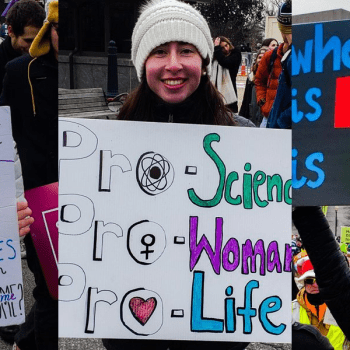
In the UK, the most prestigious bioethics body has just green-lighted the genetic engineering of children. This has several significant problems. The Guardian reported on their conclusions.
The Nuffield Council on Bioethics said that changing the DNA of a human embryo could be “morally permissible” if it was in the future child’s interests and did not add to the kinds of inequalities that already divide society. […]
“It is our view that genome editing is not morally unacceptable in itself,” said Karen Yeung, chair of the Nuffield working group and professor of law, ethics and informatics at the University of Birmingham. “There is no reason to rule it out in principle.”
Genetic Engineering as Discrimination
Fortunately, the Guardian report at least mentions some of the issues.
But the report drew immediate criticism from some quarters, with one lobby group accusing the authors of opening the door to the unrestricted use of heritable genetic engineering, and an age of genetic haves and have-nots. […]
The prospect of modifying genes in human embryos has long been controversial though. For a start, the procedure has yet to be proven safe. In a study published in Nature Biotechnology on Monday, British researchers found that the most popular tool for genome editing, Crispr-Cas9, caused more damage to DNA than previously thought. If the scientists are right, gene editing could disrupt healthy genes when it is meant only to fix faulty ones.
Another consideration is that any changes made to an embryo’s DNA would affect all of its cells, including the sperm or eggs, meaning that genetic modifications would be passed down to all future generations. Also, in the vast majority of cases alternative procedures, such as preimplantation genetic testing, can be used to screen embryos for harmful DNA.
DNA editing also raises the possibility of “designer babies”, where the genetic code of embryos created through standard IVF is rewritten so that children have traits the parents find desirable. The Nuffield report does not rule out any specific uses of genome editing, but says that to be ethical, any applications must follow the principles of being in the child’s interests, and have no ill-effects for society.
Jackie Leach Scully, professor of social ethics and bioethics at Newcastle University, and a co-author on the report, said heritable genome editing may one day become an option for parents “to try and secure what they think is the best start in life” for their future children.
You can read the rest in the Guardian.
The Impossibility of Some Goals
This seems nice in theory, but several of the stated limits simply won’t work.
First, right in the story, the Guardian has a contradiction. It says that scientists have, “the tools to rewrite the DNA bound up in living cells, letter by letter.” However, a few paragraphs later as cited above, it notes that the main technique, Crispr-Cas9, causes damage to the rest of the DNA. If the technique damages other DNA, it isn’t editing letter-by-letter. Such damage likely results in rather significant and dangerous side effects. If your genetic modification goes awry and you have a malformed animal, you can just kill it, but, once conceived, a human can never be directly killed.
Second, they say it’s moral only if, genetic engineering “did not add to the kinds of inequalities that already divide society.” How is that possible? Gene-editing implies doing a battery of tests while the baby is outside the uterus. Such procedures without the tests or gene-editing are already out of reach for a huge portion of society. These are expensive procedures that only the upper-middle class and above can afford. They will inevitably lead to a further inequality in society.
Third, what determines the best interests of the child? They say it must be “in the future child’s interests.” (Sidenote, unless they are talking about editing sperm and egg, there is a CHILD present, not a future child.) It seems obvious that for certain conditions that would kill an infant or child, that they want to live. However, there are many people who have slight issues we might consider negative who wouldn’t give them up if offered the opportunity to be “normal,” as such conditions often make them better in another aspect of life. And some are minor: for example, why take a big risk to adjust nose size? We shouldn’t work to have a homogeneity of traits in humans but to help each be the best they can be.
Finally, the suggestion that “preimplantation genetic testing” might be a better alternative is scary. Preimplantation genetic testing is IVF where you remove one cell at about the eight-cell stage, test the genes in that cell, and then kill the baby if it isn’t genetically fit. It is eugenic.
In Vitro Fertilization (IVF) is Assumed
When many people in secular circles, they make a fundamentally wrong assumption. They forget to mention that in order to effectively edit sperm, egg or embryos, you will need to use IVF. They don’t even bring up the moral issues here. Every human being has the right to be conceived in love, not in a lab. In Vitro denies them that right. Also, IVF often means that many of the babies created that way, die in the process. The Catechism is clear on this in #2377.
Techniques involving only the married couple (homologous artificial insemination and fertilization) are perhaps less reprehensible, yet remain morally unacceptable. They dissociate the sexual act from the procreative act. The act which brings the child into existence is no longer an act by which two persons give themselves to one another, but one that “entrusts the life and identity of the embryo into the power of doctors and biologists and establishes the domination of technology over the origin and destiny of the human person. Such a relationship of domination is in itself contrary to the dignity and equality that must be common to parents and children.”168 “Under the moral aspect procreation is deprived of its proper perfection when it is not willed as the fruit of the conjugal act, that is to say, of the specific act of the spouses’ union . . . . Only respect for the link between the meanings of the conjugal act and respect for the unity of the human being make possible procreation in conformity with the dignity of the person.”
Passing on Genetic Engineering
Since the editing happens so early, it will modify sperm and egg cells so it will be passed down. In 2008, the Vatican ruled on this.
The moral evaluation of germ line cell therapy [genetic modification that can pass on to offspring] is different. Whatever genetic modifications are effected on the germ cells of a person will be transmitted to any potential offspring. Because the risks connected to any genetic manipulation are considerable and as yet not fully controllable, in the present state of research, it is not morally permissible to act in a way that may cause possible harm to the resulting progeny.
If we are adding something to human genetics for all of future history, we have to be very careful. The Vatican didn’t rule it out in theory but ruled it out for the foreseeable future as it is too dangerous.
Conclusion
Some genetic modifications are moral. For example, if I had problems in my kidneys due to some gene, they could modify the genes in my kidney to fix this. However, as it is proposed with editing sperm and egg or recently conceived humans, it is unacceptable for many reasons. It creates moral problems due to IVF, discrimination, the dangers of passing on genes, side-effects, and the inability to know what is really in the child’s best interests
(If you are interested in such topics, read my recent article on Three-Parent Embryos.)
The Nuffield Council on Bioethics overlooked many factors in their report which puts forth the morality of genetic engineering of babies. Even though in theory some gene therapies are morally acceptable, we need to fight strenuously to avoid losing our humanity in our search for perfect genetics.
Update: More Info on the Problems with CRISPR-CAS9
In reply to this, someone posted an article with more information on the recently discovered problems regarding CRISPR. I will quote a few lines but if this interests you, go and read it yourself.
From the earliest days of the CRISPR-Cas9 era, scientists have known that the first step in how it edits genomes — snipping DNA — creates an unholy mess: Cellular repairmen frantically try to fix the cuts by throwing random chunks of DNA into the breach and deleting other random bits. Research published on Monday suggests that’s only the tip of a Titanic-sized iceberg: CRISPR-Cas9 can cause significantly greater genetic havoc than experts thought, the study concludes, perhaps enough to threaten the health of patients who would one day receive CRISPR-based therapy.
The results come hard on the heels of two studies that identified a related issue: Some CRISPR’d cells might be missing a key anti-cancer mechanism and therefore be able to initiate tumors.
The DNA damage found in the new study included deletions of thousands of DNA bases, including at spots far from the edit. Some of the deletions can silence genes that should be active and activate genes that should be silent, including cancer-causing genes.
The DNA chaos that CRISPR unleashes has been “seriously underestimated,” said geneticist Allan Bradley of England’s Wellcome Sanger Institute, who led the study. “This should be a wake-up call.” […]
One leading CRISPR developer called it “well-done and credible,” “a cautionary note to the [genome-editing] community,” and consistent with other research showing that the DNA cuts that CRISPR makes, called double-stranded breaks, “can induce the types of genomic DNA rearrangements and deletions they report.” He asked not to be identified so as not to jeopardize business relationships with genome-editing companies.












